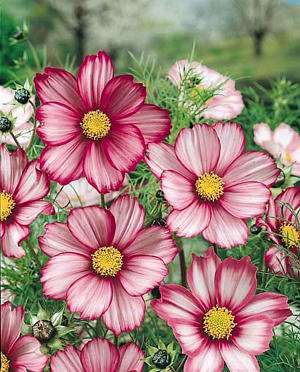Booklet: Floral Heart (Australia 2023)
Floral Heart (Australia 2023)
03 January (Australia ) within release Special Occasions 2023 goes into circulation Booklet Floral Heart face value 10*1.20 Australian dollar
| Booklet Floral Heart in catalogues | |
|---|---|
| Colnect codes: | Col: AU 2023.01.03-12a |
Booklet is square format.
Also in the issue Special Occasions 2023:
- Stamp - Floral Heart face value 1.20;
- Booklet - Floral Heart face value 10*1.20;
- Stamp - Floral Heart face value 1.20;
- Gutter Pairs - Floral Heart face value 2*1.20;
- Stamp - Flutes of Champagne face value 1.20;
- Booklet - Flutes of Champagne face value 10*1.20;
- Stamp - Flutes of Champagne face value 1.20;
- Gutter Pairs - Flutes of Champagne face value 2*1.20;
- Stamp - Happy Birthday To You face value 1.20;
- Booklet - Happy Birthday to You face value 10*1.20;
- Stamp - Happy Birthday to You face value 1.20;
- Gutter Pairs - Happy Birthday To You face value 2*1.20;
- Stamp - Let's Celebrate face value 1.20;
- Stamp - Let's Celebrate face value 1.20;
- Booklet - Let's Celebrate face value 10*1.20;
- Gutter Pairs - Let's Celebrate face value 2*1.20;
- Stamp - Map of Australia face value 1.20;
- Gutter Pairs - Map of Australia face value 2*1.20;
- Stamp - Paper Flower Bouquet face value 1.20;
- Gutter Pairs - Paper Flower Bouquet face value 2*1.20;
- Stamp - Paper Heart Bouquet face value 1.20;
- Booklet - Paper Heart Bouquet face value 10*1.20;
- Stamp - Red Waratah face value 1.20;
- Stamp - Red Waratah face value 1.20;
- Booklet - Red Waratah face value 10*1.20;
- Gutter Pairs - Red Waratah face value 2*1.20;
- Souvenir Sheet - Special Occasions face value 13.20;
- Stamp - Teddy Bear face value 1.20;
- Stamp - Teddy Bear face value 1.20;
- Booklet - Teddy Bear face value 10*1.20;
- Gutter Pairs - Teddy Bear face value 2*1.20;
- Stamp - Wedding Rings face value 2.40;
- Gutter Pairs - Wedding Rings face value 2*2.40;
- Stamp - White Tulips face value 1.20;
- Booklet - White Tulips face value 10*1.20;
- Stamp - White Tulips face value 1.20;
- Gutter Pairs - White Tulips face value 2*1.20;
- Stamp - Wedding Rings face value 2.40;
|
Data entry completed
50%
|
|
|---|---|
| Booklet Floral Heart in digits | |
| Country: | Australia |
| Date: | 2023-01-03 |
| Print: | Offset lithography |
| Emission: | Commemorative |
| Format: | Booklet |
| Face Value: | 10*1.20 Australian dollar |
Booklet Floral Heart it reflects the thematic directions:
A flower, sometimes known as a bloom or blossom, is the reproductive structure found in plants that are floral (plants of the division Magnoliophyta, also called angiosperms). The biological function of a flower is to effect reproduction, usually by providing a mechanism for the union of sperm with eggs. Flowers may facilitate outcrossing (fusion of sperm and eggs from different individuals in a population) or allow selfing (fusion of sperm and egg from the same flower). Some flowers produce diaspores without fertilization (parthenocarpy). Flowers contain sporangia and are the site where gametophytes develop. Many flowers have evolved to be attractive to animals, so as to cause them to be vectors for the transfer of pollen. After fertilization, the ovary of the flower develops into fruit containing seeds. In addition to facilitating the reproduction of flowering plants, flowers have long been admired and used by humans to beautify their environment, and also as objects of romance, ritual, religion, medicine and as a source of food.
The heart is a muscular organ found in most animals. This organ pumps blood through the blood vessels of the circulatory system.The pumped blood carries oxygen and nutrients to the body, while carrying metabolic waste such as carbon dioxide to the lungs.In humans, the heart is approximately the size of a closed fist and is located between the lungs, in the middle compartment of the chest, called the mediastinum.


